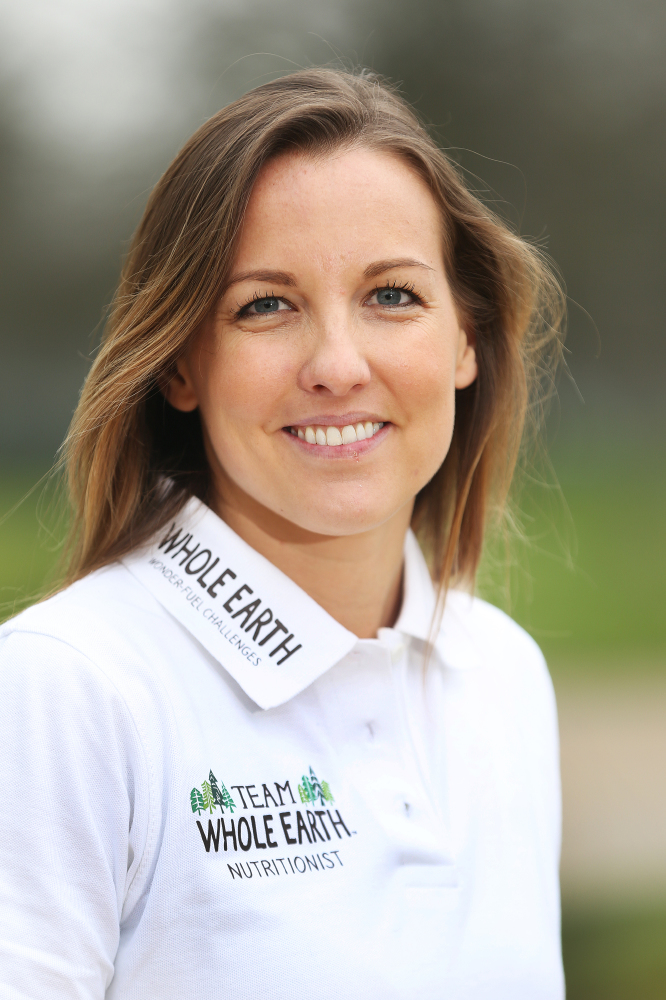We caught up with Nutritionist Charlotte Stirling-Reed to talk about the ins and outs of a vegan diet; what the pitfalls are, how to get all your vital nutrients in a day and from a professional perspective, if it's healthy way to live.

Charlotte Stirling-Reed
As a nutritionist do you believe the vegan diet to be a healthy one?
It can be. A vegan diet is quite tricky to follow but if someone is able to do it well, and get support from a registered dietician or nutritionist whilst they're doing it, then it can be done properly and be healthy.
Being vegan doesn't necessarily mean that a diet is healthy though, and that's important to understand. If you want to follow a vegan diet, it's important to replace the foods you'll be cutting out so getting support can help with this.
Why do you think the vegan diet is gaining momentum?
A big food trend this year and last year is plant based diets. I think people are becoming more aware of where their food is coming from, and therefore I think that is one reason people are turning to plant based diets like veganism. You also have a number of high-profile bloggers and celebrities promoting it, which helps any trend to take off. In my line of work, I have started to see more people beginning to think about where their food comes from and being more aware of health and sustainability messages around food.
Most people worry about protein intake when going vegan. How much should the average woman have in a 24 hour period and what does this look like in terms of food on a vegan plate throughout the day?
The recommendations around protein foods are for a vegetarian to have around three portions of protein a day. In terms of what this might look like spread throughout the day, a day's protein intake might include two slices of peanut butter on toast in the morning, a couple of spoons of hummus with vegetable sticks as a snack and a serving of kidney beans in your evening meal. It's actually not difficult to get protein into a vegetarian diet, it is however more difficult to get certain minerals such as iron and zinc. Other good sources of protein in the diet can include meat alternatives such as tofu and quorn, but also beans, lentils, pulses, chickpeas as well as nuts and seeds. Also if a person eats dairy, they will get some protein from dairy foods too.
Vitamin B12 should be supplemented on a vegan diet, so how effective are supplements in the absence of the food that provides them?
Definitely a B12 supplement could be useful because it is difficult to get B12 on a vegan diet, this supplement will help to ensure that there is a reduced risk of deficiency especially if the rest of the diet is well balanced.
Where do you stand on raw food? Is it better to eat raw food over cooked food?
Not necessarily. Food isn't black and white, it's not that one type of food is better than another, it's all about moderation and importantly some foods actually release their nutrient properties more effectively when they are cooked or heated. So whereas cooking can destroy some nutrients, it can also make some more readily available for absorption.
A varied, balanced diet is always best.
Are there any foods that vegans should eat each and every day?
Not necessarily because it's all about variety but nuts are a great food, full of fibre, protein, healthy fats and plenty of vitamins and minerals, making them a great, regular addition to a vegan diet.
What should a balanced meal look like for a vegan?
A diet high in fruits and vegetables which also includes wholegrains and wholemeal carbohydrates but also provides plenty of nutrients from protein sources such as the ones explained above. In addition to this, it's important to provide non-diary sources of calcium, such as a calcium-fortified plant-based milk and yoghurt.
Are there any common mistakes of new vegans in terms of what they eat?
Yes, I would say that cutting foods out of your diet and not replacing them would be the big one. Many people think that going vegan automatically means being healthy but if you don't replace iron and calcium-rich foods for example, you may end up with low-intakes or even deficient in those nutrients.
There have been lots of documentaries and articles on the dangers of sugar, even in fruit, so how many pieces of fruit should a vegan eat in a day? Which are best to choose?
The "dangers" with sugar in our diet comes from sugars which are added into our foods, and often foods with added sugar don't contain much in the way of nutrients. The recommendation is to have more than five portions of fruits and vegetables per day, therefore it is up to an individual how many of those come from fruit and how many come from vegetables, but varying them is a good idea. The sugars within fruit are thought of as intrinsic sugars, they are bound within the fruits' structure and come alongside plenty of fibre which means they're not necessarily a problem to our health.
Where do you stand on fruit juice? Is one glass a day ok or should we stay away from it altogether?
New guidelines say that we should avoid having more than one glass of juice a day, one 150ml glass of juice is ok to include in your diet, especially if consumed at mealtimes. It's especially a good source of vitamin C.
Renowned Nutritionist, Charlotte Stirling-Reed, is mentoring Team Whole Earth in the run up to the Man V Horse marathon on June 11th, and has pulled together a specialised nutrition plan for each team member. For more information about Team Whole Earth and the Man V Horse marathon, visit www.wholeearthfoods.com/TWE2016.
Tagged in Vegan

